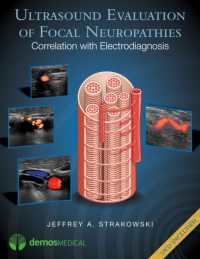- ホーム
- > 洋書
- > 英文書
- > Science / Mathematics
Full Description
Aquaculture in the Ecosystem - An Introduction The growth of Aquaculture and its future role as a food supplier to human society has environmental, social and economic limitations, affecting marine ecosystems and socio-economic scales from local to global.








